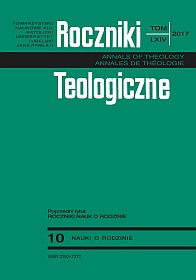Progres czy regres w komunikacji interaktywnej młodego pokolenia
Abstrakt
W przeszłości mass media tradycyjne (prasa, radio, telewizja) preferowały linearny, czyli jednokierunkowy przekaz informacji: od nadawcy do odbiorcy. Nowe media odeszły od tego sposobu komunikowania na rzecz interaktywności, czyli dwukierunkowego modelu: od nadawcy do odbiorcy i od odbiorcy do nadawcy. Interaktywność była postrzegana jako znak czasu, rewolucja cywilizacyjna, droga do budowania wspólnot − zarówno w wymiarze realnym, jak i wirtualnym. Interaktywność decydowała o interpersonalnym charakterze komunikacji. W podkreślaniu roli interaktywności użyłem czasu przeszłego. To nie pomyłka. Wiele sytuacji z codziennego życia nastolatków wskazuje na „przemijanie” interaktywności, a co za tym idzie − przemijanie uczestnictwa, to jakaś „samotność technologiczna”, źle rozumiana samowystarczalność. Ta teza, odważna i zapewne postawiona jako problem badawczy, wzbudzi wiele kontrowersji. Samo odejście od interaktywności byłoby chyba bardziej niebezpieczne niż niekontrolowana ewolucja Homo sapiens w stronę Homo videns. Byłby to już nie tylko kryzys utraty rozumu i zdolności poznawczych (non vidi, ergo non est), lecz także kryzys uczestnictwa, kryzys dialogu i generalnie kryzys komunikacji. Byłby to początek elektronicznej samotności. Czy można zrezygnować z interaktywności? Na rzecz czego? Te pytania mogą stanąć u podstaw kolejnej teorii komunikacji.
Bibliografia
Dogiel G., Antropologia filozoficzna, Kraków 1992.
Flew T., New media, Oxford: Oxford University Press 2008.
Griffin E., Podstawy komunikacji społecznej, Gdańsk: Gdańskie Wydawnictwo Psychologiczne 2003.
Jęczeń J., Active Learning Serving Family, „Roczniki Nauk o Rodzinie”, 2(57)(2010), s. 207-222.
Jęczeń J., Cyber-exploitation in Family Life, w: U. Bartosch, A. Kulma (red.), Gewalt in der Gesellschaft – Ansätze und Handlungsmöglichkeiten der Sozialen Arbeit, Eichstätt: Katholische Universität Eichstätt-Ingolstadt 2013, s. 31-40.
Jęczeń J. (red.), Człowiek i rodzina w przestrzeni medialnej, Sandomierz: Wydawnictwo Diecezjalne i Drukarnia w Sandomierzu 2011.
Jęczeń J., Komunikuję się, więc JESTEM, Lublin: Wydawnictwo KUL 2016.
Jęczeń J,, Nowe technologie – nowa komunikacja w rodzinie, w: J. Jęczeń (red.), Człowiek i rodzina w przestrzeni medialnej, Sandomierz: Wydawnictwo Diecezjalne i Drukarnia w Sandomierzu 2011, s. 89-90.
Jęczeń J., Transcendencja w stronę prawdy podstawą tożsamości rodziny i jej posłannictwa w świecie współczesnym, w: M. Brzeziński, J. Jęczeń (red.), Tożsamość i posłannictwo rodziny, Lublin: Wydawnictwo KUL 2014, s. 13-24.
Kline D., I Blog, Therefore I AM, w: D. Kline, D. Burstein, Blog!: How the Newest Media Resolution is Changing Politics, Business, and Culture, New York: CDS Books 2005.
Simonson S., Peck J., Craig R.T., Jackson J. (red.), The Handbook of Communication History, New York: Routledge 2012.
Copyright (c) 2017 Roczniki Teologiczne

Utwór dostępny jest na licencji Creative Commons Uznanie autorstwa – Użycie niekomercyjne – Bez utworów zależnych 4.0 Międzynarodowe.





